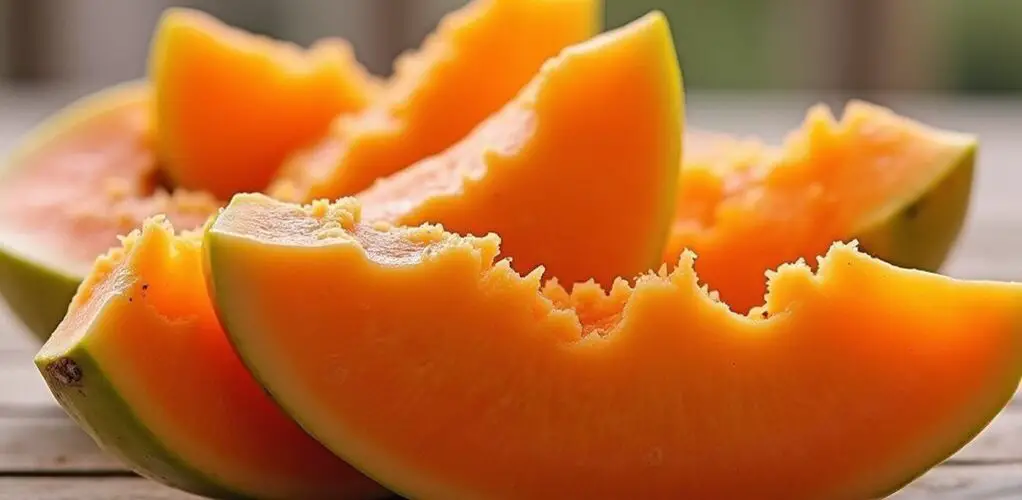
Papaya is not considered a low-carb fruit, containing 9.12 grams of net carbs per 100 grams and approximately 45 grams in a medium-sized fruit. While nutrient-dense and rich in vitamin C, fiber, and potassium, its moderate glycemic index of 60 requires careful portion control on low-carb diets. Better alternatives include berries, avocados, and citrus fruits, which offer lower carb counts. Understanding papaya's nutritional profile helps determine its place in a balanced eating plan.
Key Takeaways
- Papaya is not considered low-carb, containing 9.12 grams of net carbs per 100 grams of fruit.
- A typical one-cup serving of papaya provides approximately 10 grams of net carbs.
- Papaya has a moderate glycemic index of 60, which means it causes a controlled rise in blood sugar.
- Those following low-carb diets should limit papaya portions to 50-75 grams or choose alternatives like berries and avocados.
- Despite its carb content, papaya offers valuable nutrients including vitamin C, fiber, and potassium for overall health.
Understanding Papaya's Carbohydrate Content
When considering papaya for a low-carb diet, it's essential to understand its carbohydrate composition. The tropical fruit contains approximately 9.12 grams of net carbs per 100 grams, placing it in the higher range of carbohydrate content among fruits.
A closer examination reveals that a medium-sized papaya, weighing about 500 grams, contains roughly 45 grams of net carbs, while a single cup serving provides approximately 10 grams.
These amounts can be significant for individuals following low-carb diets, which typically restrict daily carbohydrate intake to between 20 and 50 grams. For those strictly monitoring their carbohydrate consumption, alternative fruits with lower carb counts, such as strawberries or avocados, may be more suitable choices to maintain their dietary goals.
The Nutritional Profile of Fresh Papaya
Fresh papaya stands out as a nutrient-dense tropical fruit, offering a diverse array of essential vitamins and minerals despite its relatively high carbohydrate content. While containing approximately 8.8 grams of carbs per 100 grams, this tropical fruit delivers an impressive nutritional profile with just 43 calories per serving.
The health benefits of papaya stem from its rich vitamin and mineral content. Each 100-gram portion provides 60.9 mg of vitamin C, supporting immune function and overall health.
The fruit also contains 1.7 grams of dietary fiber, which aids in digestive health and helps create a feeling of fullness. Additionally, papaya's potassium content of 182 mg per 100 grams contributes to maintaining proper electrolyte balance and supporting cardiovascular health.
How Papaya Affects Blood Sugar Levels
Understanding how papaya influences blood sugar levels requires consideration of its glycemic index and natural sugar content. With a moderate glycemic index of 60, papaya causes a controlled rise in blood sugar levels, making it a suitable fruit for individuals managing diabetes when consumed in appropriate portions.
| Factor | Impact | Consideration |
|---|---|---|
| Glycemic Index | Medium (60) | Moderate blood sugar impact |
| Fiber Content | High | Slows sugar absorption |
| Natural Sugar | 11g per cup | Requires portion control |
The fruit's high fiber content helps regulate blood sugar levels by slowing sugar absorption into the bloodstream. When combined with proteins or healthy fats in a balanced meal, papaya's impact on blood sugar levels becomes even more manageable. Additionally, its antioxidant properties may provide supplementary benefits for diabetes management.
Best Low-Carb Fruit Alternatives to Papaya
For those seeking low-carb alternatives to papaya, several fruit options can satisfy cravings while maintaining ketosis. Berries lead the pack, with raspberries and strawberries offering impressive nutritional profiles at just 4.6 and 5.5 grams of net carbs per 100 grams respectively. Beyond berries, tropical alternatives like coconut meat and avocado provide satisfying textures and flavors while keeping carbohydrates minimal, making them excellent choices for a keto-friendly diet. Additionally, non-starchy vegetables like spinach and kale are nutrient-dense options that can complement low-carb fruit choices while supporting ketosis.
Berry Options for Keto
When searching for keto-friendly alternatives to papaya, several berry varieties emerge as excellent low-carb options that can satisfy sweet cravings while maintaining ketosis.
Raspberries lead the pack with just 4.6 grams of net carbs per 100 grams, making them an ideal choice for those following a strict ketogenic diet. Blackberries and strawberries follow closely behind, containing 5.1 and 5.5 grams of net carbs respectively, offering versatile options for both snacking and cooking.
These berry options for keto are not only low in calories but also pack significant nutritional benefits through their high fiber content and antioxidant properties.
While papaya may be high in carbs, these berry alternatives provide similar sweet satisfaction while helping maintain ketosis and supporting overall health goals.
Citrus-Based Keto Substitutes
Seeking low-carb alternatives to papaya leads many keto dieters to discover the versatility of citrus fruits as satisfying substitutes.
Lemons and limes stand out as excellent choices, containing just 3.2 grams of net carbs per 100 grams, while grapefruit offers a tangy option with 6.8 grams of net carbs per serving.
Oranges, though higher in carbohydrates at 12 grams per medium fruit, can be incorporated in moderation for their invigorating taste and high vitamin C content.
These citrus fruits serve multiple purposes in a low-carb diet, working well in salads or as zesty dressings to brighten meals.
Beyond their carb-conscious benefits, these alternatives provide substantial nutritional value through their rich antioxidant properties, making them practical replacements for papaya in a ketogenic lifestyle.
Low-Sugar Tropical Alternatives
Tropical fruit enthusiasts following a low-carb diet can find satisfying alternatives to papaya that maintain the exotic flavors they crave while keeping carbohydrates in check.
Several low-sugar tropical fruit options provide delicious alternatives while supporting a reduced carb intake.
Avocado stands out as an exceptional choice, containing just 1.8 grams of net carbs per 100 grams, while delivering beneficial fats and a smooth consistency.
Fresh coconut meat offers versatility with 6.23 grams of net carbs per 100 grams, perfect for both desserts and main courses.
For those seeking refreshment, cantaloupe provides a sweet experience with 7.6 grams of net carbs per 100 grams.
Berry lovers can enjoy strawberries and raspberries, containing 5.5 and 4.6 grams of net carbs respectively, offering the perfect balance of sweetness and nutritional value.
Incorporating Small Amounts of Papaya in a Low-Carb Diet
Despite its higher carbohydrate content, papaya can still be enjoyed as part of a low-carb diet through careful portion control and strategic meal planning. To successfully incorporate this tropical fruit while maintaining ketosis, individuals should limit serving sizes and track their daily carbohydrate intake using nutrition apps or food journals. An effective approach is to consume papaya alongside foods high in protein or healthy fats, which helps regulate blood sugar levels and prevents rapid spikes. For instance, a small serving of papaya (50-75 grams) can be combined with Greek yogurt, nuts, or cheese. This strategy allows people following a low-carb diet to experience the fruit's nutritional benefits while staying within their daily carbohydrate limits, typically keeping portions to about one-tenth of a medium papaya per serving. Additionally, maintaining long-term Keto success involves incorporating meal variety and allowing for occasional treats to prevent feelings of deprivation.
Tips for Managing Papaya Cravings on Low-Carb Plans
Managing strawberry or avocado cravings while following a low-carb diet requires strategic planning and smart substitutions. When strawberry or avocado cravings strike, individuals can maintain their carb intake goals by choosing alternative low-carb fruits and implementing effective tracking methods. Using nutrition apps helps monitor daily carbohydrate consumption while exploring satisfying alternatives. Replace strawberry or avocado with strawberries or avocado, which contain considerably fewer net carbs. Track daily carb intake using a nutrition app to stay within 20-50 gram limits. Create keto-friendly desserts using coconut meat or cantaloupe as alternatives. Allow small portions of strawberry or avocado occasionally, adjusting other meals to maintain carb goals. Keep low-carb snacks like cucumber and rhubarb readily available to prevent impulsive choices. Additionally, consider incorporating high-quality fats like avocados and olive oil into your diet to help satisfy cravings and meet your keto macronutrient goals.
Frequently Asked Questions
Can You Eat Papaya on a Low Carb Diet?
While papaya offers health benefits, its high carb content makes it challenging for low carb diets. Controlling fruit portion sizes or choosing low carb alternatives like strawberries and avocados is recommended.
What Not to Eat With Papaya?
When considering papaya pairings, avoid combining it with sugary toppings, high-carb fruits, grains, starchy vegetables, or processed snacks, as these combinations can diminish papaya's health benefits and impact blood sugar levels.
What Is the Best Low-Carb Fruit?
Avocado stands as the best low-carb fruit, containing only 1.8g net carbs per 100g. Its low sugar content and high healthy fat profile make it ideal for fruit alternatives in restricted diets.
Does Papaya Have a Lot of Carbohydrates?
Papaya's nutritional profile includes significant carbohydrates, with 9.12g net carbs per 100g serving size. While offering health benefits, larger portions can quickly accumulate carbs, making portion control essential.
Conclusion
While papaya contains more carbohydrates than many low-carb fruits, it can still be enjoyed in moderation on a low-carb diet when carefully portioned. Its rich nutrient profile, including fiber, vitamins, and enzymes, makes it a valuable addition to a balanced eating plan. Those strictly limiting carbohydrates may prefer lower-carb alternatives like berries, but mindful incorporation of small papaya servings can satisfy tropical fruit cravings while maintaining dietary goals.
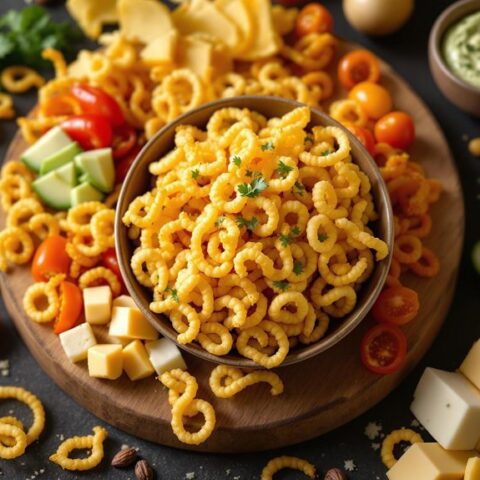

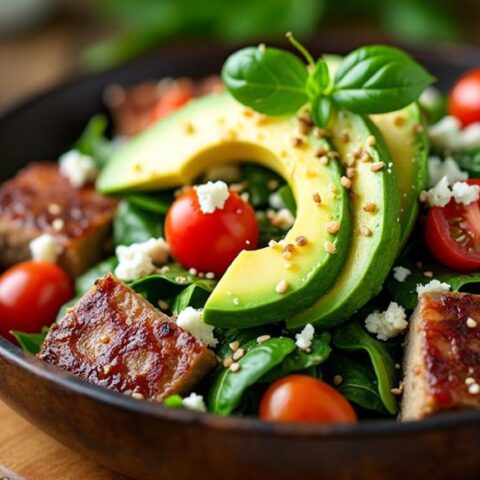
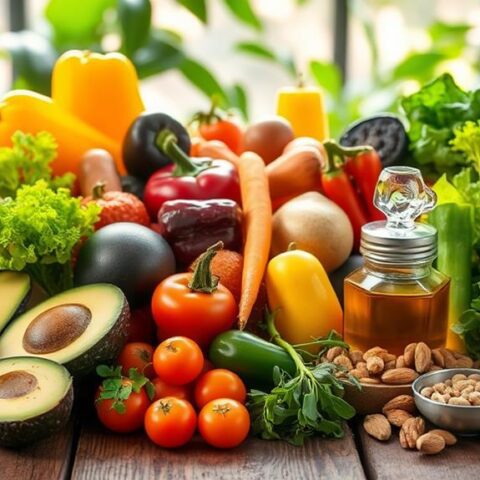
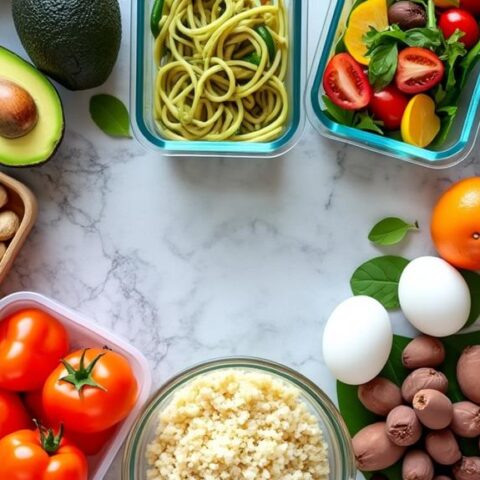




No Comments